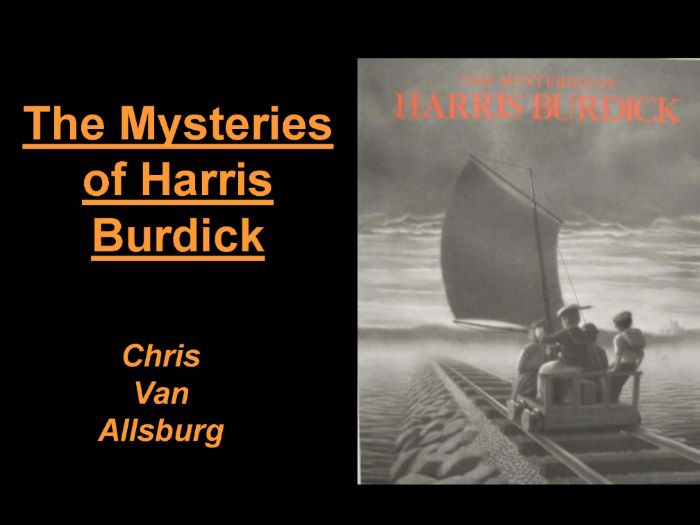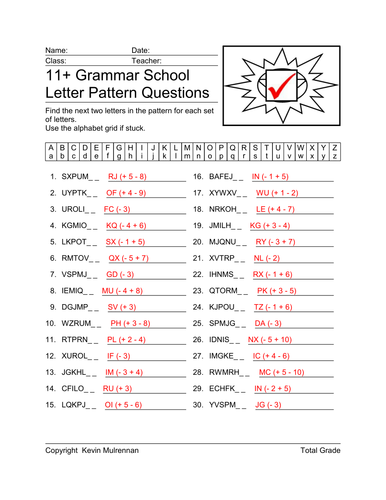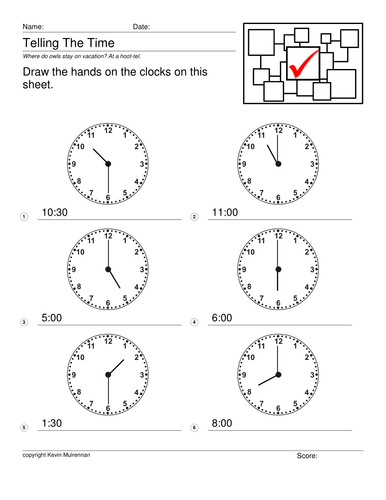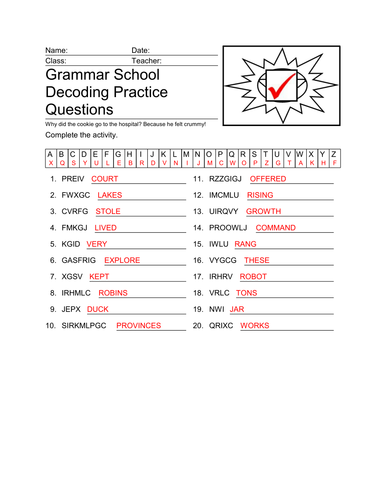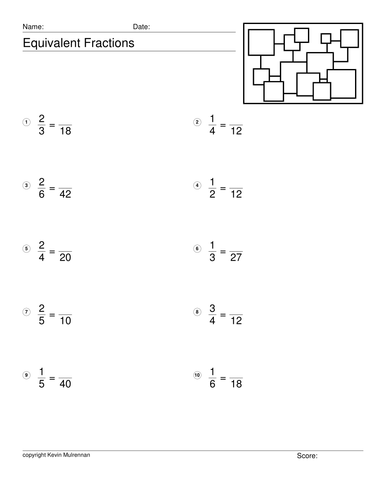406Uploads
123k+Views
41k+Downloads
Sale

11+ Verbal Reasoning Questions Letter Patterns Vol 2
Another 100 worksheets on volume 2. I've included more questions per sheet and for some I have omitted the alphabet grid. I have designed 100 worksheets on letter patterns for the 11+ non verbal reasoning questions. There are 100 worksheets provided on a cd. Letter patterns is an important aspect of the 11+ exams. Ideal for parents, pupils and tutors. Answer sheets provided. Introduce some logic and problem solving skills to students with the Letter Patterns worksheet. Sets of letters related in some way are displayed. Students must find the next two letters in the pattern for each set of letters. You can see an answer sheet in my picture with the answers in red.
Sale

Telling The Time 96 Worksheets with Answers Maths Differentiated Clocks KS1 KS2
98 worksheets plus answers on telling the time.
Pupils have to draw the time on the clock faces.
Plenty of variety on the sheets. e.g. time on the hour, half hour, quarter hour, plus some five minute ones.
Sale

100 Worksheets Addition Maths Easy at Start Hard at the End
100 worksheets on addition.
I’ve used a nice big font.
They start off easy then get progressively harder.
Answer sheets provided for all worksheets.
Sale

11+ Verbal Reasoning Decoding Vol 1 Maths KS2
I have designed 100 worksheets on decoding numbers for the 11+ non verbal reasoning questions. There are 100 worksheets provided on a cd. Decoding is an important aspect of the 11+ exams. Ideal for parents, pupils and tutors. Answer sheets provided. The Decoding worksheet helps to reinforce spelling and problem solving skills for students. The letters of each word are replaced with other letters or numbers based on a pattern. Students must translate the words and spell them correctly. You can see an answer sheet in my picture with the answers in red.
Sale

Equivalent Fractions 100 Worksheets with Answers Maths
100 worksheets with answers.
20 per sheet.
Pupils have to write the equivalent fractions.
Sale

Number Order 100 Worksheets with Answers Maths Mathematics KS1
100 worksheets with answers on Number Order.
Pupils have to put the numbers in the correct order.
There are at least 10 sets of numbers per sheet.
A nice little time filler.
Bundle Sale

Decoding Bundle 200 Worksheets Verbal Reasoning
A bundle of worksheets.
200 worksheets on decoding,
Plus some great ones on Pythagoras.
I have designed 200 worksheets on decoding numbers for the 11+ non verbal reasoning questions. There are 200 worksheets provided on a cd. Decoding is an important aspect of the 11+ exams. Ideal for parents, pupils and tutors. Answer sheets provided. The Decoding worksheet helps to reinforce spelling and problem solving skills for students. The letters of each word are replaced with other letters or numbers based on a pattern.
Sale

1000 Questions Advanced Addition Maths Mathematics KS2
1000 questions on advanced addition.
Pupils write the answers directly on the sheets. There are different numbers of digits that they can add up.
Answers all provided.
Sale

1000 Questions on Shopping KS2 Mathematics Money Calculator Use
1000 questions on shopping.
Answers provided.
Pupils have to work out the cost of various food items.
Lots of variations.
Would be good as a homework or calculator use.
Bundle Sale

Bundle Coins Worksheets UK Euro Shopping
A good value bundle.
Fill in the worksheets on counting Euro coins, UK coins and a series of shopping questions that test knowledge of money etc.
Bundle Sale

Bundle Year 5 Literacy Planning Autumn Term KS2 Greek Myths & Coins Worksheets KS2
A great bundle.
This is a zip file containing Literacy planning for a year 5 class (Autumn term).
Plus great worksheets where pupils have to tot up the value of the coins. All answers provided.
It consists of 14 short term plans I designed. There is one Literacy lesson per day.
You will get 14 Microsoft Word documents. They are based on the Greek myths.
I’ve also included for free some extra teaching materials that you can use. I’ve included too 3 medium term plans , one for each term). These cover plans and ideas not just for Literacy, but other subjects as well.
I’ve also included an extra week from the next term. Feel free to use it to plug any gaps.
This will help you do your own planning. Feel free to cut and paste into your own school’s plans.
Ideal for someone who had to do a term’s supply like I had to do.
Please bear in mind:
every school is different. My plans assume you have the aide of a TA, but this is not essential. There is no differentiation in the planning. Everyone does the same thing to the best of their ability.
you may want to add your own detail. These are short term plans remember.
I have used walts and wilts. Your school may do something different.
A very few number of weeks have a small gaps for things like tests and inset days. Use the extra week one planning for the next term (included for free) if you wish.
Sale

Year 6 Complete First Week Back to School planning Matilda Roald Dahl
Great Literacy planning for the first week back.
You get the planning and three powerpoints and two word documents.
Sale

Divali Diwali Planning Worksheets Powerpoints Hindu Sikh World Religion
My planning and worksheets from various schools on Divali and associated themes.
Lots of ideas you can hone.
Colourful powerpoints you can show and add material to.
sample
To use skimming and scanning skills to read information texts and identify the main features in structure and language.
I can identify the features of an information text.
I can create subheadings for my information text.
I can choose relevant information for my note taking.
Starter:
Go over what skimming and scanning skills are with the class.
What is the difference between fiction and non-fiction texts? Think of as many features as you can.
Introduction:
Explain that by the end of the week we will be making some informative leaflets, however, we must first research what we would like to include within our leaflets.
What is an information text? What does it do?
Look at the leaflets on your tables.
Create a checklist as a table.
Introduction (what is the text about?)
Each paragraph is a main idea.
Sub headings
Questions to make the reader think
Use formal and impersonal language.
Talk about ‘people’ and ‘they’. Try not to use personal pronouns, such as I or me.
Stick to the facts
Some descriptive phrases
Conclusion to sum up.
Diagrams
Technical vocabulary
Text boxes
Present tense
Third person
This will be used later on to inform them of their own structure and design for their leaflet.
Move onto Diwali and researching the topic:
What do you already know about Diwali?
Let’s share our ideas.
What questions do we want to know the answers to?
Today, you are going to start your research for your information text on Diwali.
Think of a title
Think of your sub headings (nice to have a question)
Collect your notes (what skills will you be using? Skim, scan, note).
Collect diagrams (make notes as to where they are)
Chn to be given a grid to write their four question on that they will then research.
In your notes:
Get as much technical vocabulary as you can.
Get as much information as you can.
Main:
To collect notes for your information texts from iPads. Look at Kidrex.
Including videos
Sale

Matilda Roald Dahl Day Literacy Year 6 Planning Powerpoint Setting Descriptions
My planning for teaching Matilda in Year 6.
Nice planning and powerpoint.
Great to adapt for your personal planning.
sample planning :
Sale

Ted Hughes Iron Man Planning and Worksheets
Some nice files on this interesting topic.
About a dozen word documents with planning.
A couple of useful adobe files.
Worked well in my classroom!
Sale

Fables Myths Legends planning Powerpoints Year 6 Literacy Welsh legends
Three weeks of plans.
You get powerpoints.
Looks at myths particularly Robin Hood and Welsh legends
You get plenty of resources.
Sample:
Ask the children to TTYP and name some famous legends.
Come back together and discuss (King Arthur, Robin Hood etc).
Ask children what they think are the features of a legend?
Establish that myths and legends are very similar but that Although legends often include mythical beings and supernatural events, their narrative spine is more closely connected to the real world of human history. The events in legends tend to seem more likely and less fictionalised than those in myths.
Legends are usually based on real characters and events, even though these have been richly embellished and exaggerated over time. This gives the narrative an exciting quality because all the events seem to be within the realm of possibility even when the plot has become so widely adapted or updated that it is completely fictional.
The plot of a legend usually focuses on an individual character, a cultural hero or a person respected and remembered (Jason, King Arthur, Robin Hood, William Tell, Roland) but there are also legends about places (Atlantis, Shangri-La), objects (the Holy Grail, the Philosopher’s Stone) and legendary animals (the Yeti, Loch Ness monster, Sasquatch, Chupacabra).
Make a checklist for the working wall ‘Features of legends’ to include:
Plot focuses on hero, struggle between hero and villain, journeys, rich vocabulary, imagery, metaphor, a more human story.
Read ‘Robin Hood: Outlaw with a sense of humour’ from Hamilton Trust resources page 9.
Make a list of attributes a hero, villain and side-kick should have in a legend
HA: describe all 3 types of character, include more detail, use complex sentences (with, who, when – model for children)
MA: write about all 3 characters – IR to support
LA: make a character description of Robin Hood – mind map vocabulary first then write 5 good sentences about him.
JS support
Sale

European Day Of Languages Powerpoints France Spain Italy
For the European day of languages, but can be used anytime.
Useful info on France, Spain, Italy, Greece, Germany, Sweden and Wales.
Brilliant for assemblies.
Great value as there is a lot of stuff.
Sale

Back to School Morning Resources Powerpoint Maths Year 4 Year 5
Some material that can be displayed on the board as they enter for registration.
7 to 10 simple questions per day
Two weeks worth.
sample ;
A school bag could weight about:
2 metres, 2 centimetres, 2 kilometres, or 2
kilograms?
The length of a bed measures about:
2 kilos, 2 metres 2 inches or 12 metres?
The height of a school building would be measured in:
centimetres, litres, kilometres, metres?
How many mms in 25cms?
How many strips of 10cm could you cut from 2 metres
of tape?
In the year 3 classroom there are 4 pots with 5 crayons
in each pot. How many crayons are there altogether?
Jodie thinks of a number and doubles it. The answer
is 30. What was the number Jodie thought of?
Double 7 and add 2.
Draw a square and shade ¾ of it.
A trip to the swimming baths costs 50p per child.
How much will it cost for 4 children?
Bundle Sale

Bundle 11+ Verbal Reasoning Decoding Vol 1 Maths KS2 & Antonymn sheets
Bundle.
decoding vol 1 plus Antonymn sheets.
I have designed 100 worksheets on decoding numbers for the 11+ non verbal reasoning questions. There are 100 worksheets provided on a cd. Decoding is an important aspect of the 11+ exams. Ideal for parents, pupils and tutors. Answer sheets provided. The Decoding worksheet helps to reinforce spelling and problem solving skills for students. The letters of each word are replaced with other letters or numbers based on a pattern. Students must translate the words and spell them correctly. You can see an answer sheet in my picture with the answers in red.
100 sheets where you have to circle the correct antonymn.
Sale

Year 5 Autumn Planning R.E. Religious Studies Catholic Hindu St Francis Assisi Aesop Worksheets
Save your Sundays!
From my time teaching in Catholic schools.
Re planning and worksheets.
Concentrates on the Creation, St Francis of Assisi, Padre Pio and Hinduism.
Consists of planning, powerpoint, worksheets.
Plus cloze worksheets on Aesop.
37 mb of stuff so good value.

